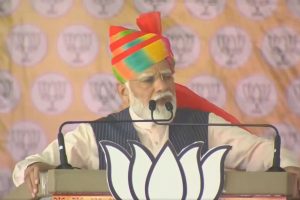When actor Irrfan Khan declared some days ago that he had been diagnosed with a rare disease the news came as a shock to his fans. However, not many perhaps know that in Delhi alone there are about one million people who are affected with rare illnesses.
Dr Ratna Dua Puri, senior consultant at Institute of Genetics and Genomics, Sir Ganga Ram Hospital claimed that about 80 per cent cases of rare diseases are genetic in origin and predominantly affect children.
“A rare disease is any disease that affects a small percentage of the population. In some parts of the world, an orphan disease is a rare disease whose rarity means they have a low incidence and affect a small number of patients compared with other more relevant disorders,” Dr Puri clarified.
Dr Puri said approximately 7,000 rare diseases have been identified so far.
“Even though individually they may be rare, collectively they contribute to a significant burden and affect 6 to 8 per cent of the population,” she said, adding that they pose a significant societal, medical and economic burden for patients, communities and healthcare systems.
She pointed out exact burden of rare disorders are not known in India due to lack of epidemiological data. “But based on international estimates we could have 72 to 96 million people affected by rare diseases in India,” Dr Puri said.
The name of the rare disorders are thalassemia, haemophilia, spinal muscular atrophy, Duchenne muscular dystrophy, fragile X, inborn errors of metabolism and lysosomal storage disorders among others.
Explaining the symptoms of rare disorders, Dr Puri said, every rare disorder varies with disease.
“For instance, in thalassemia, there is chronic anemia with hepatosplenomegaly. Rare disorders also affect the central nervous system and some have multi-systemic involvement,” she added.
Dr Puri noted the government has now put a national rare disease policy in place and Rs 100 crore have been allocated towards genetic disorders.
“Under the policy, the Central Government will contribute 60 per cent towards spending on treatment, while state governments will have to bear the remaining 40 per cent of the cost. This is a groundbreaking policy for patients suffering from rare diseases,” she added.











